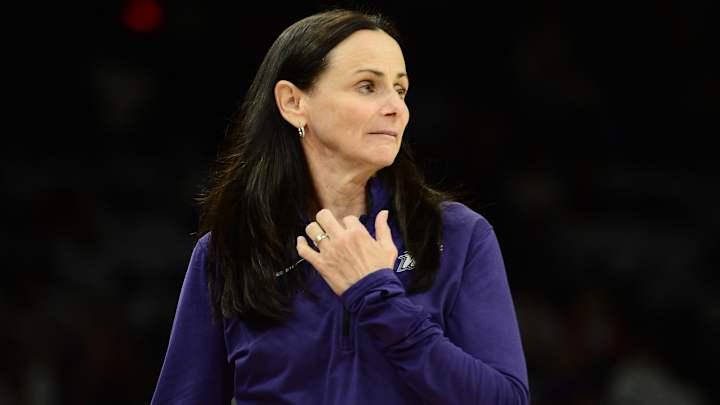Could a Bournemouth Striker's Racist Abuse Report Lead to Arrest?

Understanding the Impact of Racial Abuse in Sports: The Case of Antoine Semenyo
Racial abuse in sports is a pervasive issue, affecting not only the players but also the integrity of the game itself. Recently, Bournemouth player Antoine Semenyo faced this unfortunate reality during the opening match of the Premier League against Liverpool at Anfield. The incident, which occurred in the 29th minute of the match, highlights the ongoing struggle against racism in football and the urgent need for comprehensive measures to combat this behavior. The quick actions taken by Semenyo, the match officials, and the clubs involved illustrate a collective effort to address this critical issue. In this article, we will explore the events surrounding the incident, the reactions from various stakeholders, and the broader implications for football and society.
The Incident: A Brief Overview
During the match held on a Friday evening, Semenyo reported being racially abused by a spectator, leading to a temporary halt in the game. The referee, responding promptly to the player’s concerns, paused the match to address the situation. Merseyside Police quickly identified a 47-year-old man from Liverpool, who was subsequently removed from Anfield Stadium. Following the incident, the man was arrested on suspicion of a racially aggravated public order offence, underscoring the seriousness of the allegations. This swift response from law enforcement showcased the commitment to tackling racism at sporting events.
Players' Responses and Support
In the aftermath of the incident, Semenyo's resilience shone through as he went on to score two goals during the match, despite the distressing experience. Bournemouth captain Adam Smith commended Semenyo's courage, stating, "It shows what kind of man he is to report it to the ref and carry on." This sentiment reflects a growing recognition among players that speaking out against discrimination is a vital part of their roles as athletes and public figures.
The support from Liverpool players further emphasized the unity within the football community. Liverpool manager Arne Slot noted that while the fans were amazing and the tributes to Diogo were heartfelt, the incident overshadowed the positive aspects of the match. This acknowledgment highlights the need for solidarity among players and teams, regardless of rivalries on the pitch.
Institutional Reactions: A Collective Stand Against Racism
The Premier League and the Football Association (FA) also reacted swiftly, with both organizations committing to an investigation into the incident. The FA released a statement emphasizing that "incidents of this nature have no place in our game," and expressed their intent to collaborate with match officials, clubs, and relevant authorities to ensure appropriate actions are taken. The Premier League's involvement in the investigation reflects a broader commitment to addressing racism within the sport and ensuring a safe environment for all players.
The Role of Anti-Discrimination Organizations
Organizations such as Kick It Out, dedicated to promoting equality and inclusivity in football, also voiced their support for Semenyo. They praised him for his courage in speaking out against the abuse he faced. This reaction from anti-discrimination bodies is crucial, as it reinforces the message that racism will not be tolerated in sports. Their involvement adds another layer of accountability and encourages players to feel empowered to report such incidents without fear of repercussions.
The Broader Implications of Racial Abuse in Football
The incident involving Antoine Semenyo is not an isolated case but rather part of a larger pattern of racial abuse that has plagued football for years. Understanding the implications of such behavior is essential for fostering a more inclusive environment in sports.
Impact on Players
Racial abuse can have profound effects on the mental health and well-being of players. Athletes often face immense pressure to perform, and the added burden of discrimination can lead to anxiety, depression, and a decline in performance. The psychological toll of such abuse can linger long after the incident, affecting a player’s career and overall quality of life.
Impact on Fans and Communities
Racial abuse does not only affect players; it has far-reaching consequences for fans and communities as well. Incidents like the one at Anfield can alienate supporters and contribute to a toxic atmosphere at games. It is essential to recognize that football is a reflection of society, and incidents of racism can perpetuate divisions within communities. Addressing these issues is crucial for fostering mutual respect and understanding among fans.
Institutional Responsibility: Steps Forward
Football organizations must take proactive steps to combat racism and promote equality. This includes implementing comprehensive educational programs for players, staff, and fans, as well as establishing clear protocols for reporting and addressing incidents of abuse. Increased collaboration with anti-discrimination organizations can further enhance these efforts, ensuring that the message against racism is loud and clear.
The Role of Social Media
In today’s digital age, social media plays a significant role in shaping public perceptions of racism in sports. Platforms such as Twitter, Instagram, and Facebook can amplify voices and bring attention to incidents of discrimination. However, they can also serve as a breeding ground for abuse. It is vital for social media companies to take responsibility for monitoring and addressing hate speech on their platforms, creating a safer environment for all users.
Conclusion: A Call to Action
The incident involving Antoine Semenyo serves as a stark reminder of the challenges that persist in the fight against racism in football. It underscores the importance of collective action from players, clubs, and governing bodies to create a more inclusive and respectful environment for all. As the football community rallies together to support Semenyo and condemn discrimination, it is crucial for fans and stakeholders to join in this effort. Together, we can foster a culture of respect and equality in sports, ensuring that incidents of racial abuse become a thing of the past.
FAQs
What actions can players take if they experience racial abuse during a match?
Players are encouraged to report any incidents of racial abuse to the match officials immediately. It is essential for them to document the incident and seek support from their teammates and club representatives. Many organizations also provide resources and support for players facing discrimination.
How are football organizations addressing racism in the sport?
Football organizations are implementing educational programs, establishing clear reporting protocols, and collaborating with anti-discrimination bodies to address racism. They are also increasing awareness and promoting campaigns that emphasize the importance of equality in football.
What role do fans play in combating racism in football?
Fans play a crucial role in creating a positive environment at games. They can support players by speaking out against racism, participating in anti-racism campaigns, and fostering a culture of inclusivity within their communities. Fans can also hold clubs accountable for their actions and demand that they take a stand against discrimination.
As we reflect on the incident involving Antoine Semenyo, it is imperative to consider our collective responsibility in eradicating racism from sports. How can we, as a community, foster a more inclusive environment in football and beyond? #RacismInSports #StandAgainstRacism #UnityInFootball
Published: 2025-08-16 14:42:08 | Category: technology



